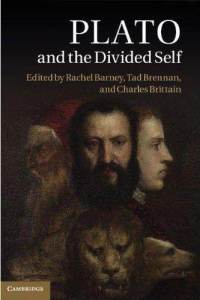The University of Toronto Colloquium in Mediaeval Philosophy 2012
Friday, September 21
Session I (3:15 – 5:15)
Chair: Gyongyi Hegedus (King’s University College, London, ON)
Speaker: Charles Manekin (University of Maryland): “Belief, Knowledge, and Scientia (‘True Knowledge’) in the Hebrew Aristotelian Tradition”
Commentator: Sarah Pessin (University of Denver)
Saturday, September 22
Session II (10:00 – 12:00)
Chair: Carlos Bazán (University of Ottawa)
Speaker: Eileen Sweeney (Boston College): “Albert the Great, Aquinas, and Bonaventure on Science”
Commentator: Edward Houser (University of St. Thomas, Houston)
Session III (2:00 – 4:00)
Chair: Brian Embry (University of Toronto)
Nate Bulthuis (Cornell University): “Walter Burley on the Language of Thought”
JT Paasch (Georgetown University): “Medieval Theories of Causal Powers”
Matthew Siebert (University of Toronto): “Second-Hand Knowledge”
Session IV (4:15 – 6:15)
Chair: Dominik Perler (Humboldt University, Berlin)
Speaker: Stephen Dumont (University of Notre Dame): “Intension and Remission of Forms: The Debate between Thomas Wylton and Walter Burley”
Commentator: Robert Pasnau (University of Colorado, Boulder)
All sessions will be held in Room 100 of the Jackman Humanities Building (170 St. George Street).
All sessions are free and open to the public.
Registration and inquiries: medieval_dot_philosophy_at_utoronto_dot_ca
The colloquium is sponsored by the Department of Philosophy, the Collaborative Program in Ancient and Medieval Studies, and the Centre for Medieval Studies.
Organizers: Deborah Black, Peter King, Martin Pickavé
 Plato and the Divided Self, a book that Rachel Barney co-edited with Tad Brennan and Charles Brittain, just came out. The volume, which also contains a chapter by Jennifer Whiting, originated from an exciting conference that took place at the University of Toronto in 2005.
Plato and the Divided Self, a book that Rachel Barney co-edited with Tad Brennan and Charles Brittain, just came out. The volume, which also contains a chapter by Jennifer Whiting, originated from an exciting conference that took place at the University of Toronto in 2005.
The book is a must-read for everyone interested in Plato’s moral psychology and in the influence Plato’s account of the tripartite soul had on later authors such as Galen, Plutarch, and Plotinus. For more information about the volume check the publisher’s website.
Fresh from the press: a new issue of Oxford Studies in Ancient Philosophy (OSAP) has just appeared in print! Contributors to vol. 42 comprise Matt Evans, James Doyle, Suzanne Obdrzalek, Karel Thein, Timothy Clarke, Jacob Rosen and Marko Malink, Zena Hitz, Sean McConnell, and Jaap Mansfeld. OSAP is edited by Brad Inwood.
CPAMP is well represented at the First Canadian Colloquium for Ancient Philosophy, University of Alberta, Edmonton, 3-5 May 2012. Rachel Barney, Lloyd Gerson, and Brad Inwood present papers at the meeting, and CPAMP student Willie Costello has a poster presentation. For more information go to the colloquium website.
Peter Hartman, who in October successfully defended his dissertation on “Durand of St.-Pourçain on Cognitive Acts: Their Cause, Ontological Status, and Intentional Character”, has accepted a tenure-track position in the Philosophy Department of Loyola University Chicago. He will start at Loyola in the Fall 2013 after spending next year as a postdoc at the Université du Québec à Montréal (with Claude Panaccio). Congratulations Peter!
Fourth Annual Toronto Workshop in Ancient Philosophy 2012
AGENCY AMIDST NATURAL TELEOLOGY
Continue reading →
Emily Fletcher has just accepted a tenure-track position at the University of Wisconsin at Madison. She will start there in the Fall. Well done, Emily. Congratulations!! Emily is currently finishing her dissertation on “Plato’s Reevaluation of Pleasure: Hedonism, Cognition and the Human Good in the Philebus” under the supervision of Rachel Barney. She will defend in May.
Ancient Philosophy at UofT is now part of the Ancient Science and Philosophy Network coordinated by the Graduate School of Ancient Philosophy at the Humboldt University Berlin. More information to come.
Longtime CPAMP faculty member Lloyd Gerson has been elected to the Royal Society of Canada. Congratulations Lloyd! The Royal Society now counts two CPAMP members among its fellows (the other one is Brad Inwood).
We are happy to report that the University of Toronto did well in the recent issue of the Philosophical Gourmet report, a reputational ranking of Philosophy Graduate Departments in the English-Speaking world. While the Department of Philosophy is ranked 15th overall (1st in Canada) we have been ranked especially high in ancient and medieval philosophy!

 Plato and the Divided Self, a book that Rachel Barney co-edited with Tad Brennan and Charles Brittain, just came out. The volume, which also contains a chapter by Jennifer Whiting, originated from an exciting conference that took place at the University of Toronto in 2005.
Plato and the Divided Self, a book that Rachel Barney co-edited with Tad Brennan and Charles Brittain, just came out. The volume, which also contains a chapter by Jennifer Whiting, originated from an exciting conference that took place at the University of Toronto in 2005.